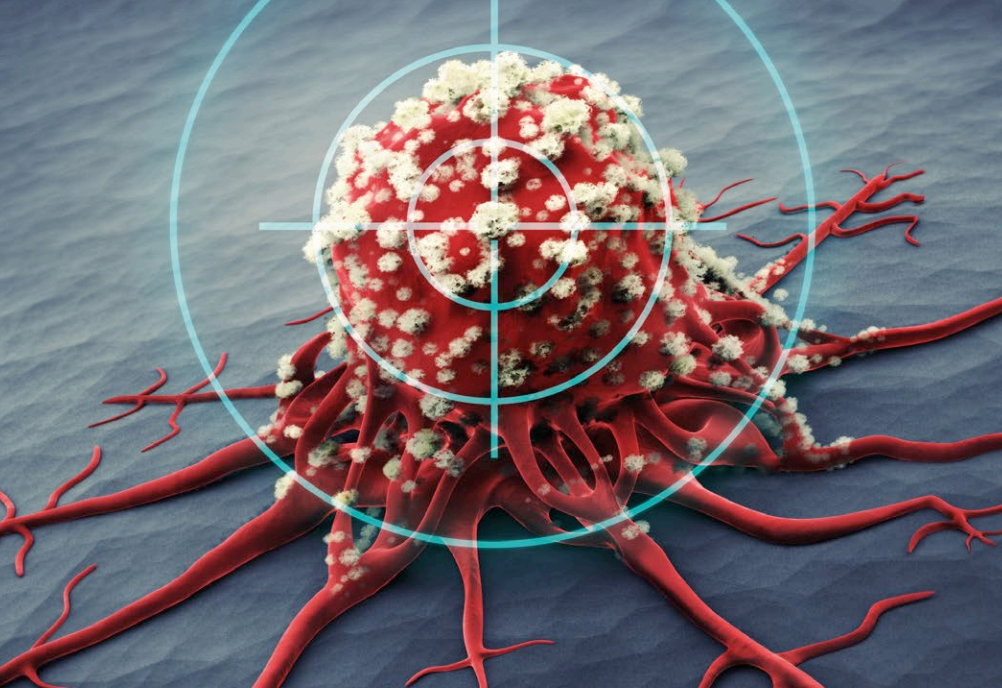Share this Page:
Dr Thomas Powles from St Barts Hospital, London spoke about the work looking for tissue-based biomarkers for renal cell carcinoma (RCC) for potential use in the clinic at the European International Kidney Cancer Symposium (EIKC) 2021 Virtual Meeting.
To date, the only biomarker that is used is one to predict survival (prognosis) based on the International Metastatic Renal Cell Carcinoma Database Consortium (IMDC) model. In a real-world study involving 1,021 patients who received second-line treatment (targeted therapy) for metastatic RCC, the average survival since the start of second-line treatment was 12.5 months. Five of six factors in the IMDC model (anaemia, thrombocytosis, neutrophilia, Karnofsky performance status <80, and <1 year from diagnosis to first-line targeted therapy) predicted poor survival. Average survival was 35.3 months in the favourable risk group, 16.6 months in the intermediate risk group, and 5.4 months in the poor-risk group.
Other biomarkers that have shown some promise are tumour mutational burden (the number of genetic mutations in the genes of the tumour), PD-L1 positivity, angiogenesis biomarkers, the presence of CD8 receptors on T cells, a novel cluster of 26-genes in the tumour, and various genetic mutations, such as MET. A recent study reported a cluster of 7 genetic subtypes in RCC tumours (angiogenic/stromal, angiogenic, complement/Ω-oxidation, T-effector/proliferative, proliferative, stromal/proliferative, and snoRNA) associated with different clinical outcomes to combination treatments.
In conclusion, there has been more focus on drug development than patient selection, and this needs to change. RCC is different from other cancers with respect to immunology and biomarkers have been difficult to find, but perhaps researchers have not been looking hard enough. Genetic biomarkers have been investigated, but there are no clinical trials to validate them and change clinical practice. The identification of the series of 7 genetic subtypes might be a breakthrough in finding a biomarker for metastatic RCC.













